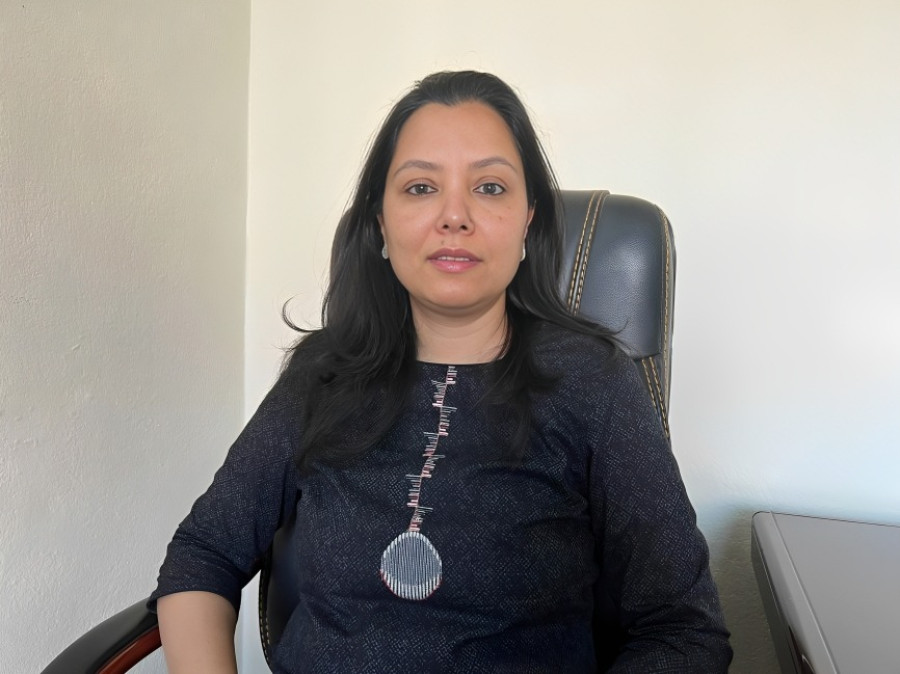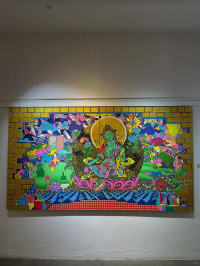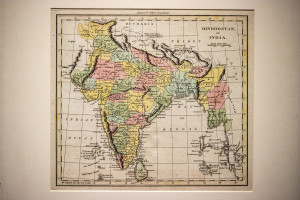Culture & Lifestyle
Building safe spaces for women
From an intern to executive director, Suvekchya Rana has dedicated two decades to transforming lives at Saathi.
Skanda Swar
When Suvekchya Rana walked into the Saathi office for an internship, she never imagined she would still be there 21 years later. What began as a temporary assignment became a lifetime calling, transforming the lives of many violence survivors.
Now, as Executive Director of Saathi, Rana oversees an organisation that has provided refuge for women experiencing domestic violence for over thirty years. Under her leadership, Saathi boasts four women’s shelters and four children’s shelters, catering to all women and children escaping domestic violence, human trafficking, rape, and incest. Founded in 1992, Saathi aids hundreds of women and children nationwide each year.
Rana was familiar with the organisation and its mission before joining Saathi, as she is the daughter of one of its founders. “I attended leadership programmes and gender training with my mother,” she recalls. “Her work and its impact influenced me. However, as a child, I did not know I would remain with Saathi or build my career here.”
Upon completing her graduate studies, she arrived at Saathi as a program coordinator for the children. For Rana, this role cemented her belief that violence against women and children was intertwined. “When we started working with women, most came with kids,” says Rana. “In the past, we didn’t know what to do with their kids and where to send them, but then we started our children’s programme in 2004-2005.”
With her guidance, children now graduate from their youth programme with scholarships and educational resources. She asserts that this process fosters a universal ecosystem; improvement takes time, and everyone requires ongoing support.
“I don’t have set office hours because I’m focused on crisis management,” she says. “Much of my time is spent on counseling and placement for the survivors. It can happen at any moment—no Saturdays or Sundays. It depends on when we receive a case, so I must answer calls when they come in.” Despite this, Rana is also balancing another aspect of her life. “Managing a small startup on the side is not an issue because I have a very supportive family at home,”
Even while heading the organisation and facing a busier schedule, her work with survivors on a personal level has imparted lessons that no classroom can teach.
“Many survivors are so resilient as they restart their lives when given a new opportunity,” she reflects. “It’s inspiring. Even when trauma holds them back, their resilience drives them to pursue change and improve their lives.”
However, it takes an emotional toll. Rana candidly shares her frustrations: “Their issues are overwhelming, and there’s limited we can do. We must empower them, eliminate their stigma, and change how society segregates them. We must even create many opportunities for them, as their children’s situation often restricts their choices.”
One unforgettable experience for her was when she encountered a little girl at a shelter. “She was terrified, sitting in a corner. I asked, 'What happened?' She replied that her stomach was hurting. It was because her aunt’s husband had raped her.” These moments make Rana’s job challenging, especially when the abusers are family members. Rather than blaming society, it’s the guardians who should feel shame.
Despite twenty years in the field, Rana continues to encounter these challenges because of society’s views on women striving to do good without seeking personal gain. “There is a misconception that growing up in respectable households in Kathmandu means you cannot empathise with others’ issues. Just because we were raised in urban environments, people assume we cannot comprehend rural struggles or assist effectively.”
Furthermore, such attitudes perpetuate disparities, regardless of initiatives like Human Rights Day or Women's Rights Day that aim to address these issues. “When a domestic violence policy was announced in Nepal, it felt like a significant victory,” she expressed. Although it sparked open conversations about violence against women as a societal concern, it also brought a bittersweet feeling about the progress of policy formulation.
The combination of kindness and resilience is what enables this work, yet it also presents significant challenges. Saathi faces many human rights violations that, regrettably, they have to decline to assist with; they are unable to help, even though it is unfortunate. Funding influences Rana’s judgment on what can be maintained now compared to what is necessary for future sustainability. “Sometimes we have capacity issues, and due to limited resources, we can't take all cases that have very big needs,” she acknowledges.
The work extends beyond individual cases to systemic change. Rana believes that lasting transformation requires collaboration between government, civil society, and citizens. “Government alone can't solve this,” she emphasises. “It's us as citizens and society that need to work together. Obviously advocacy is essential, but our mindset plays a crucial role as well. The stigma remains, so it's imperative that civil society joins forces to drive change.”
As she looks to the future, Rana feels hopeful about Nepal’s younger generation. “It's encouraging seeing the new generation—equality and equity are so clear to them. They know and speak for their rights, and it's great to see.” Yet, she stresses the necessity of including men in these discussions: "We need to ensure that boys participate equally while also empowering women.”
Her advice to young women considering similar paths is characteristically direct: “You need to be passionate to continue this work, because if you have no passion, you can’t continue. And if you’re thinking of earning money, then this is not the right path for you. But if you feel like you have passion and want to give back to society, you can definitely join.”
Rana's definition of success transcends traditional measures. For her, victory looks like survivors slowly overcoming trauma, returning to normal life, and being accepted by society despite persistent stigma. It's measured in the moment when a woman finds the strength to rebuild, when a child feels safe again, when policy changes create new pathways to justice.
Through 21 years of unwavering commitment, Rana has proven that some careers choose you rather than the other way around. Her journey from intern to Executive Director illustrates how personal passion, when aligned with societal need, can create lasting impact that extends far beyond any individual achievement. In a country where violence against women remains a persistent challenge, leaders like Rana represent the bridge between policy and practice, between hope and healing.




 13.54°C Kathmandu
13.54°C Kathmandu















